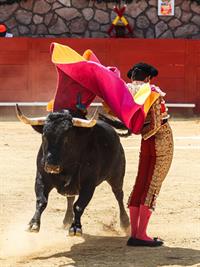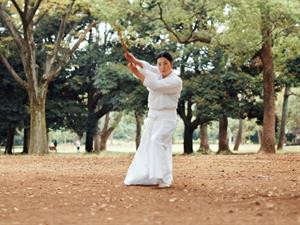OTRĀ SEMESTRA NOSLĒGUMA TESTI
The Second conditional is a grammatical structure used to express hypothetical or unreal situations in the present or future. It is often used to talk about things that are not true or unlikely to happen.
Revise what you have learned before about Second conditional!
Structure:
If + past simple, would + base verb
Why Use the Second Conditional?
1. To talk about imaginary events or situations that are unlikely to occur (e.g., If I were a bird, I would fly.).
2. To express dreams, wishes, or hypothetical scenarios (e.g., If I had more money, I would travel around the world.).
Formulating Sentences:
1. Begin with “if” followed by a subject and a verb in the past simple.
Follow with a comma and then the result clause using would plus the base form of the verb.
Example: If I played archery, I would compete in international tournaments.
2. Using "Were" with All Subjects:
Use were instead of was for all subjects in formal writing.
Example: If I were an indigenous person, I would preserve my culture.
Tips for Understanding the Second Conditional:
Remember the Past Simple:
Use the past simple form of the verb after if. For example, If she knew instead of If she knows.
Use the past simple form of the verb after if. For example, If she knew instead of If she knows.
Use would for the result:
The result of the condition uses would + verb. Remember that would is always followed by the base verb: would help, would enjoy, etc.
The result of the condition uses would + verb. Remember that would is always followed by the base verb: would help, would enjoy, etc.
Think of Examples Related to Culture and Traditions:
Create sentences that reflect cultural beliefs or practices. For example, If bullfighting were banned, people would celebrate it differently.
Create sentences that reflect cultural beliefs or practices. For example, If bullfighting were banned, people would celebrate it differently.
Practice with Real-Life Scenarios:
Come up with hypothetical questions based on your own cultural background or traditions. For example, If people understood more about martial arts, they would appreciate it better.
Come up with hypothetical questions based on your own cultural background or traditions. For example, If people understood more about martial arts, they would appreciate it better.
Piemērs:
Cultural differences in sporting traditions are fascinating. If I lived in Japan, I would learn martial arts as part of their unique culture. In Spain, if bullfighting were less controversial, more people would attend events. Archery, as an ancient sport, has different meanings globally. If people valued archery more, it would become popular in schools.
Traditions influence sports. If there were a ceremony for local sports heroes, communities would celebrate their achievements. Indigenous sports reflect a place's history. If we studied these rituals, we would understand the culture better. Some customs can surprise outsiders. If foreign visitors joined local games, they would learn about our way of life.
In many cultures, sports unify people. If we respected traditions, we would build stronger friendships. Tradition holds a special place in sports like cricket. If we had more international tournaments, it would bring cultures together. Embracing cultural diversity in sports would make the world more exciting.
Word bank:

Archery — ['ɑːrtʃəri] — the sport of shooting arrows with a bow, šaušana ar loku
Example: Archery competitions in South Korea are a blend of modern sport and traditional customs, often honoured with special ceremonies.

Bullfighting — ['bʊlˌfaɪtɪŋ] — a traditional public spectacle of Spain and some Latin American countries in which a bull is baited and killed, vērša cīņa
Example: In Spain, bullfighting is a traditional spectacle that draws on cultural customs, though it is also a topic of significant ethical debate.

Picture 1.
Ceremony — ['serəməni] — a formal religious or public occasion, typically one celebrating a particular event or anniversary, ceremonija
Example: The opening ceremony of the Olympic Games is a grand celebration of various cultures, showcasing traditional sports from around the world.

Culture — ['kʌltʃər] — the ideas, customs, and social behaviour of a society, kultūra
Example: The culture of a country greatly influences its sporting preferences, such as sumo wrestling in Japan being an important aspect of Japanese identity.

Custom — ['kʌstəm] — a traditional and widely accepted way of behaving or doing something that is specific to a particular society, place, or time, paraža
Example: In Scotland, the custom of tossing the caber during the Highland Games showcases local traditions and athletic skill.

Indigenous — [ɪnˈdɪdʒənəs] — originating or occurring naturally in a particular place; native, vietējais
Example: Indigenous sports like lacrosse have deep roots in Native American culture and are celebrated for their historical significance.

Martial arts — ['mɑːʃəl ɑːrts] — various sports or skills, mainly of Japanese or Chinese origin, that involve combat and self-defense, cīņas mākslas
Example: Different forms of martial arts, such as karate in Japan and taekwondo in Korea, highlight each nation’s unique approach to combat training.

Picture 2.
Ritual — ['rɪtʃuəl] — a set of actions, often religious, performed according to a traditional order, rituāls
Example: Before a football match in Brazil, players often perform a ritual where they touch the ground and say a prayer for good luck.

Tradition — [trəˈdɪʃən] — a custom or belief passed down through generations, tradīcija
Example: In many countries, traditional games like kabaddi in India are passed down through generations as a part of their cultural heritage.

Unique — [juːˈniːk] — being the only one of its kind; unlike anything else, unikāls
Example: The unique sport of capoeira, which combines martial arts and dance, reflects the African and Brazilian cultural influences.
Atsauce:
Picture 1. Asatur Yesayants / Shutterstock
Picture 2. Olga Dmitrieva / Shutterstock